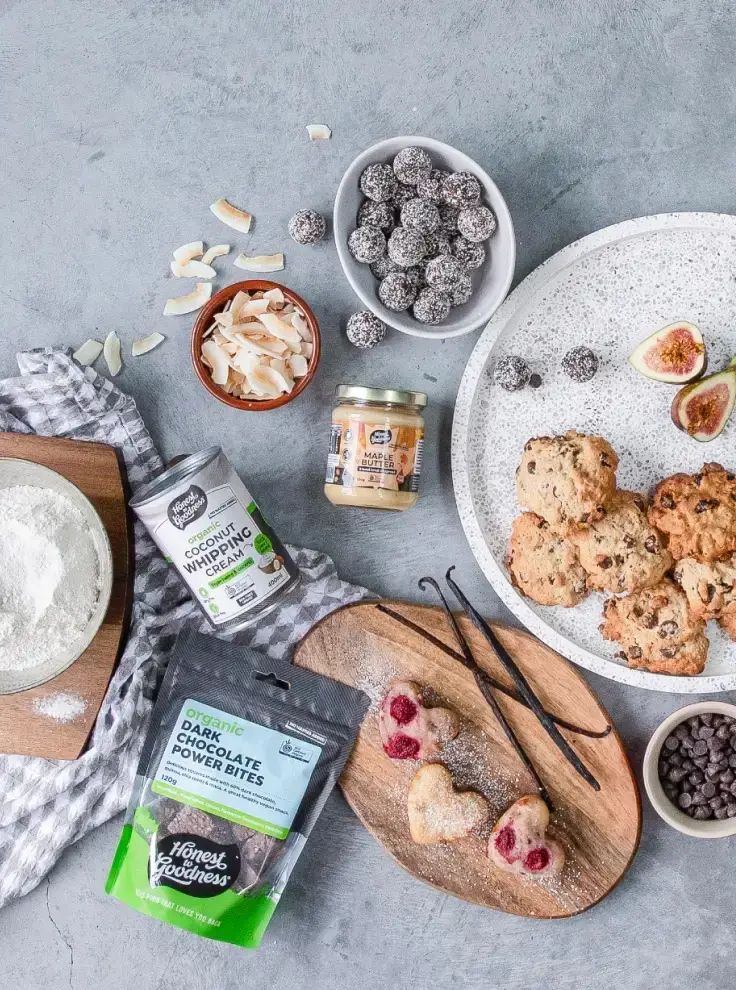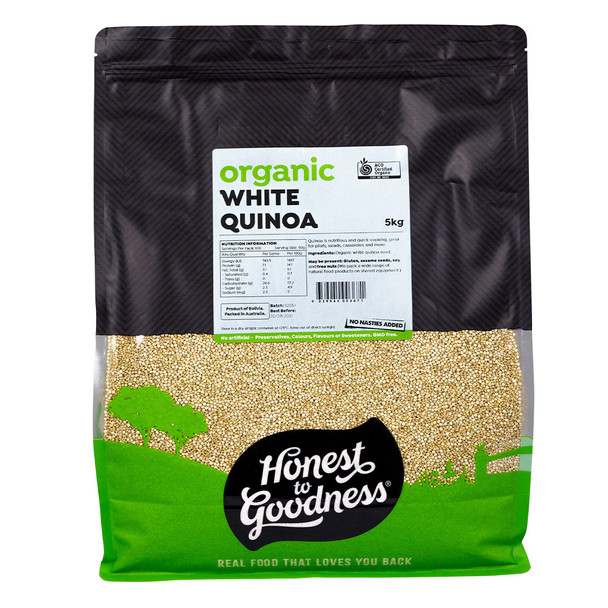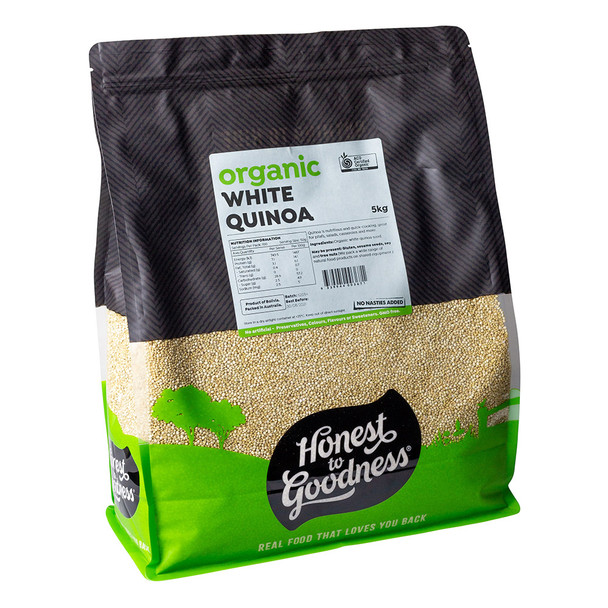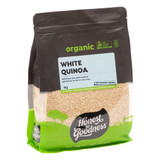Organic Quinoa, pronounced 'keen-wa', is packed with nourishing plant-based goodness - in particular a rich content of dietary fibre and protein. Great for those avoiding wheat or looking for a rice alternative, quinoa in all its different colours is easy to prepare and super versatile.
Quinoa is technically not a grain, but a seed or pseudo-grain.
No GMO. Preservative and additive free.
HOW TO USE
GROWING & PROCESSING
Quinoa is native to South America where it growns well in a cool mountain climate. The quinoa plant is a relative of beets, spinach and Swiss chard, but we treat its seeds as we would a grain, preparing and eating them in much the same way.
As it grows, the seed is coated with a dark, almost black layer of 'saponin' that has a bitter, soapy taste. Saponin is the plant's natural defence against insects, birds and other small animals that might want to eat it on the stock. Once harvested, the seeds are removed from the stalk, cleaned of any dirt and bacteria, rinsed to remove the saponin and packaged.
No insecticides or pesticides are used during the growing process and no preservatives or additives are used during the processing of the product at any stage.
Read Our Blog: 10 Things You Should Know About Quinoa
INGREDIENTS
Organic White Quinoa








Organic Quinoa, pronounced 'keen-wa', is packed with nourishing plant-based goodness - in particular a rich content of dietary fibre and protein. Great for those avoiding wheat or looking for a rice alternative, quinoa in all its different colours is easy to prepare and super versatile.
Quinoa is technically not a grain, but a seed or pseudo-grain.
No GMO. Preservative and additive free.
HOW TO USE
GROWING & PROCESSING
Quinoa is native to South America where it growns well in a cool mountain climate. The quinoa plant is a relative of beets, spinach and Swiss chard, but we treat its seeds as we would a grain, preparing and eating them in much the same way.
As it grows, the seed is coated with a dark, almost black layer of 'saponin' that has a bitter, soapy taste. Saponin is the plant's natural defence against insects, birds and other small animals that might want to eat it on the stock. Once harvested, the seeds are removed from the stalk, cleaned of any dirt and bacteria, rinsed to remove the saponin and packaged.
No insecticides or pesticides are used during the growing process and no preservatives or additives are used during the processing of the product at any stage.
Read Our Blog: 10 Things You Should Know About Quinoa
INGREDIENTS
Organic White Quinoa














 Honest to Goodness
Honest to Goodness








